11 things women should consider skipping after age 50
Turning 50 is a milestone that brings wisdom and change, including shifts in our bodies. According to the National Institute on Aging, menopause, usually occurring between the ages of 45 and 55, affects hormones, bone health, and metabolism. This is a good time to rethink habits for long-term health.
While adding healthy routines is common, it’s also important to consider what to let go of. It’s not about restriction but making smart choices for a healthier, vibrant life. Here are some things women over 50 might skip for better health.
High-Impact, High-Risk Workouts
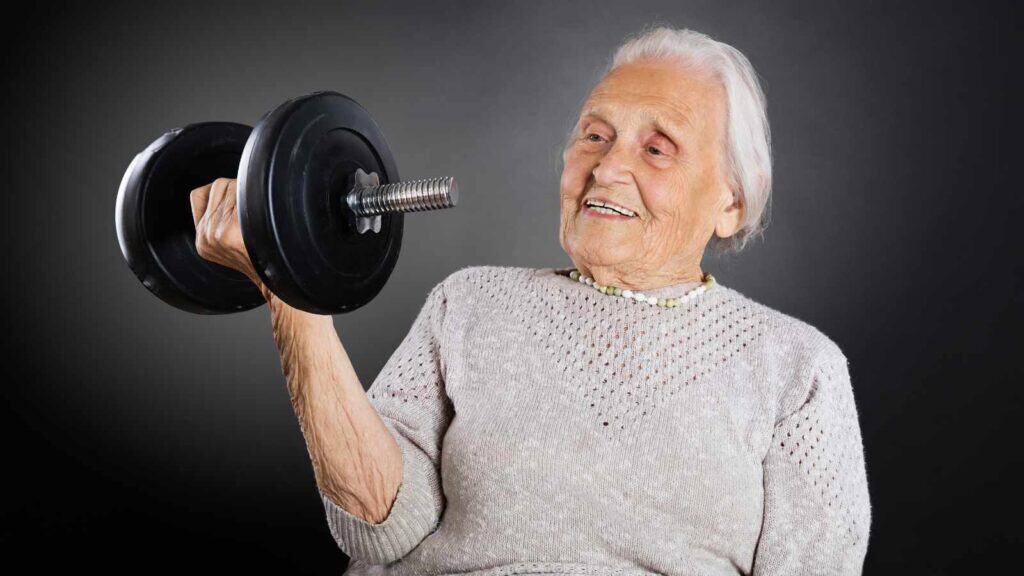
That intense, joint-jarring workout might have felt great in your twenties, but your body’s needs are different now. After 50, declining estrogen levels can reduce bone density, making you more susceptible to fractures. The CDC notes that one in four older adults reports a fall each year, and high-impact exercises can increase this risk if not done carefully.
PubMed recommends weight-bearing, low-impact activities like brisk walking, yoga, or tai chi to maintain bone strength and improve balance. These exercises build stability without putting undue stress on your hips, knees, and ankles.
Sugary Beverages
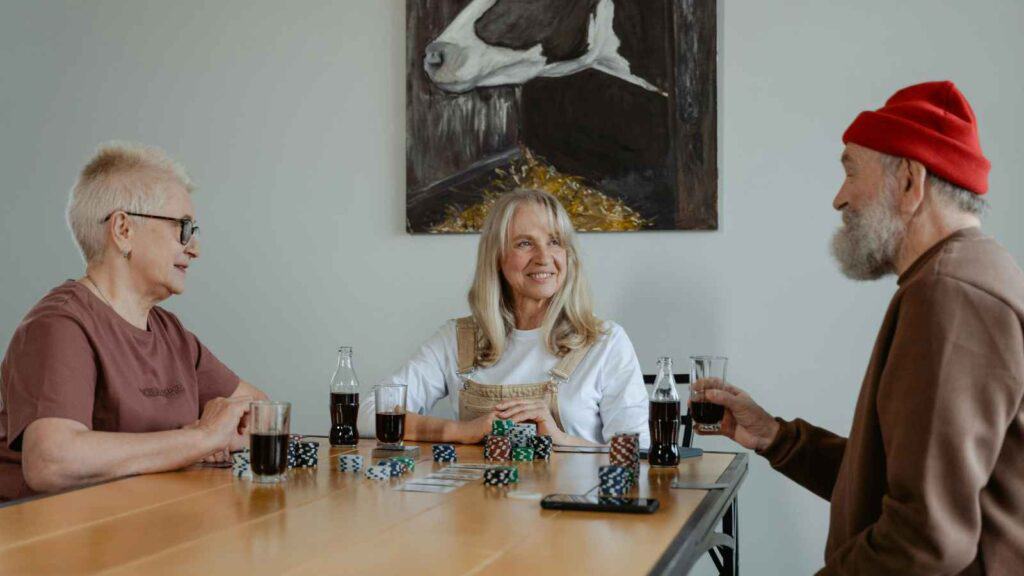
Cutting back on daily soda or sweetened iced tea can be challenging but highly beneficial. The USDA recommends limiting added sugars because sugary drinks add empty calories and can lead to weight gain, especially around the midsection after menopause.
PubMed links high consumption of sugar-sweetened beverages to an increased risk of type 2 diabetes, a condition for which women’s risk can increase with age. Swapping these drinks for healthier alternatives is a simple but effective way to support your overall wellness.
Unstructured Health Screenings

Assuming you’re fine just because you feel fine can be a risky gamble. After 50, the risk for certain health conditions rises, and regular screenings are key to early detection.
This is a proactive step to take control of your health. Keeping up with recommended screenings for blood pressure, cholesterol, and bone density can catch potential issues before they become serious problems.
Skimping on Sleep

Busy schedules can often lead to late nights and early mornings, but consistently getting less than seven hours of sleep can take a toll. The CDC recommends adults aim for 7-9 hours of quality sleep per night. For women over 50, hormonal shifts can already disrupt sleep patterns, making it even more important to prioritize rest.
Chronic sleep deprivation can affect cognitive function, mood, and immune response. It also messes with hormones that regulate appetite, which can lead to weight gain. Establishing a relaxing bedtime routine can signal to your body that it’s time to wind down and help you get the restorative sleep you need.
Overloading on Processed Foods

Convenience is tempting, but a diet heavy in processed foods, like packaged snacks and frozen meals, can be detrimental. These items are often loaded with sodium, unhealthy fats, and preservatives. The FDA points out that high sodium intake is linked to high blood pressure, a major risk factor for heart disease and stroke, which are leading health concerns for older women.
A diet centered on whole foods—fruits, vegetables, lean proteins, and whole grains—provides the essential nutrients your body needs. It supports everything from heart health to maintaining a healthy weight, which becomes increasingly important as your metabolism slows with age.
Ignoring Strength Training

Many women focus on cardio, but skipping strength training means missing out on essential benefits. As we age, we naturally lose muscle mass, a condition known as sarcopenia. Harvard Health reports that this process can start as early as our 30s and accelerates after 50. This loss of muscle can slow your metabolism and reduce your strength and stability.
Engaging in strength training at least twice a week helps counteract this decline. You don’t have to become a bodybuilder; using resistance bands, light weights, or even your own body weight can build and maintain muscle. This not only keeps you strong but also helps support your bones and boosts your metabolism.
Tanning and Sun Exposure Without Protection
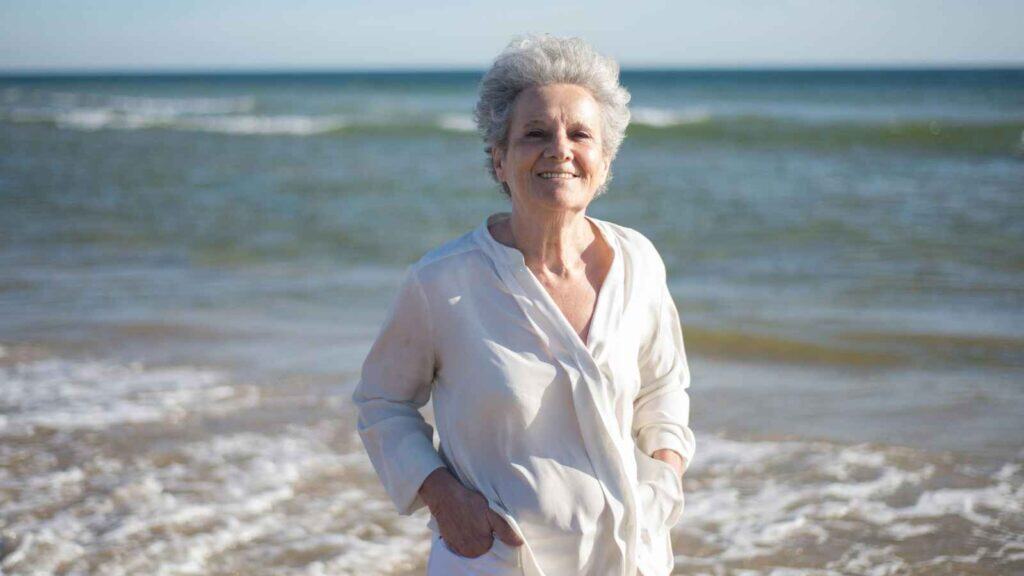
A sun-kissed glow might seem appealing, but prolonged, unprotected sun exposure is one of the biggest contributors to skin aging and increases your risk of skin cancer. The Skin Cancer Foundation states that more than 90% of the visible changes commonly attributed to skin aging are caused by the sun. Wrinkles, fine lines, and age spots are all accelerated by UV rays.
Worse, your cumulative sun exposure over the years adds up. It’s never too late to start protecting your skin. Making a habit of applying a broad-spectrum sunscreen with an SPF of 30 or higher every single day, rain or shine, is one of the best things you can do for your skin’s health and appearance.
Eating Large, Heavy Meals Before Bed

Indulging in a big dinner close to bedtime can interfere with a good night’s sleep. Your digestive system has to work overtime, which can lead to discomfort, indigestion, and acid reflux—issues that can become more common with age. Lying down after a heavy meal can make it easier for stomach acid to travel back up the esophagus.
The National Institute on Diabetes and Digestive and Kidney Diseases (NIDDK) suggests eating smaller, more frequent meals throughout the day to aid digestion. Aim to have your last major meal at least three hours before you go to sleep to give your body ample time to digest.
Forgetting About Your Pelvic Floor

The pelvic floor is a group of muscles that support the bladder, bowel, and uterus. It’s a part of the body many women don’t think about until there’s a problem. Childbirth and hormonal changes during menopause can weaken these muscles, leading to issues like urinary incontinence.
Fortunately, you can strengthen these muscles just like any other. Regularly performing Kegel exercises can improve pelvic floor strength, helping to prevent or reduce symptoms of incontinence.
Staying Dehydrated
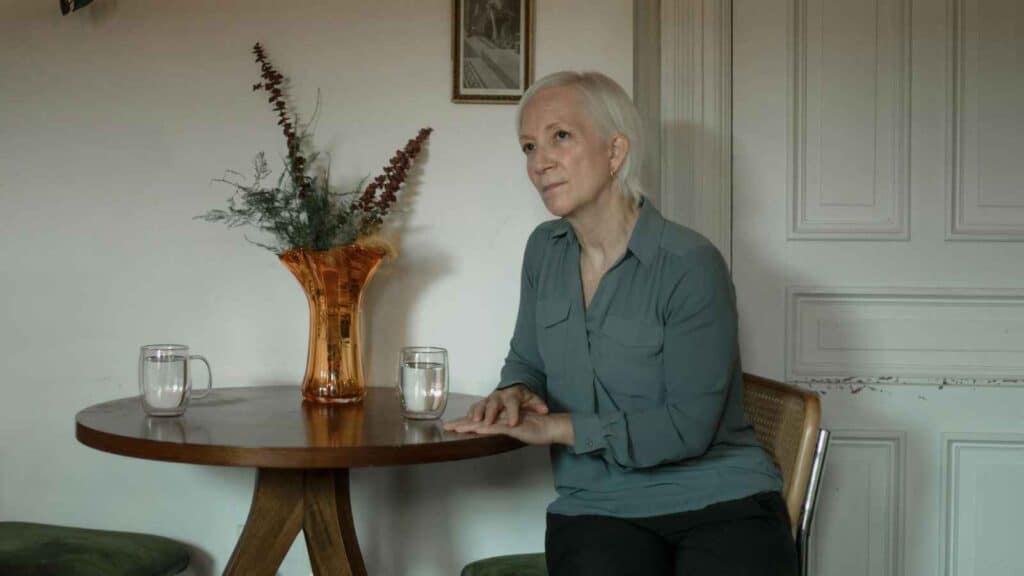
Dehydration can lead to fatigue, headaches, and even confusion. As we age, our body’s ability to conserve water and our sense of thirst can both decrease, making it easier to become dehydrated without realizing it.
The National Academies of Sciences, Engineering, and Medicine recommend women get around 2.7 liters of total fluids a day, from both beverages and food. Keeping a water bottle handy is a simple reminder to sip throughout the day, supporting your energy levels, skin health, and overall bodily functions.
Isolating Yourself
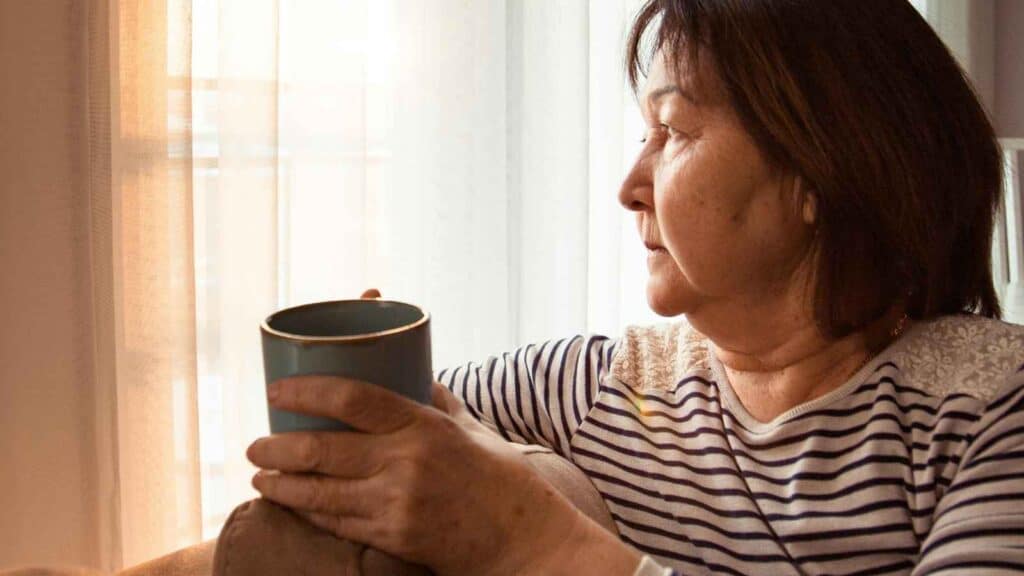
Life gets busy, and it can be easy to let friendships and social activities fall by the wayside. However, maintaining social connections is vital for mental and emotional health. The CDC links social isolation and loneliness to a higher risk for a variety of physical and mental conditions, including high blood pressure, heart disease, depression, and cognitive decline.
Making time for friends, joining a club, volunteering, or taking a class can keep you connected and engaged. These interactions provide emotional support and a sense of belonging that is just as important to your well-being as diet and exercise.
Why investing for retirement is so important for women (and how to do it)

Why investing for retirement is so important for women (and how to do it)
Retirement planning can be challenging, especially for women who face unique obstacles such as the wage gap, caregiving responsibilities, and a longer life expectancy. It’s essential for women to educate themselves on financial literacy and overcome the investing gap to achieve a comfortable and secure retirement. So, let’s talk about why investing for retirement is important for women and how to start on this journey towards financial freedom.
Science Tells Us What To Expect As We Age: Strategies for Thriving in Later Life

Science Tells Us What To Expect As We Age: Strategies for Thriving in Later Life
How does aging affect our bodies and minds, and how can we adapt to those differences? These are questions that pertain to us all. Aging gradually alters people over decades, a long period shaped by individuals’ economic and social circumstances, their behaviors, their neighborhoods, and other factors. Also, while people experience common physiological issues in later life, they don’t follow a well-charted, developmentally predetermined path. Let’s take a look at what science has told us to expect.







